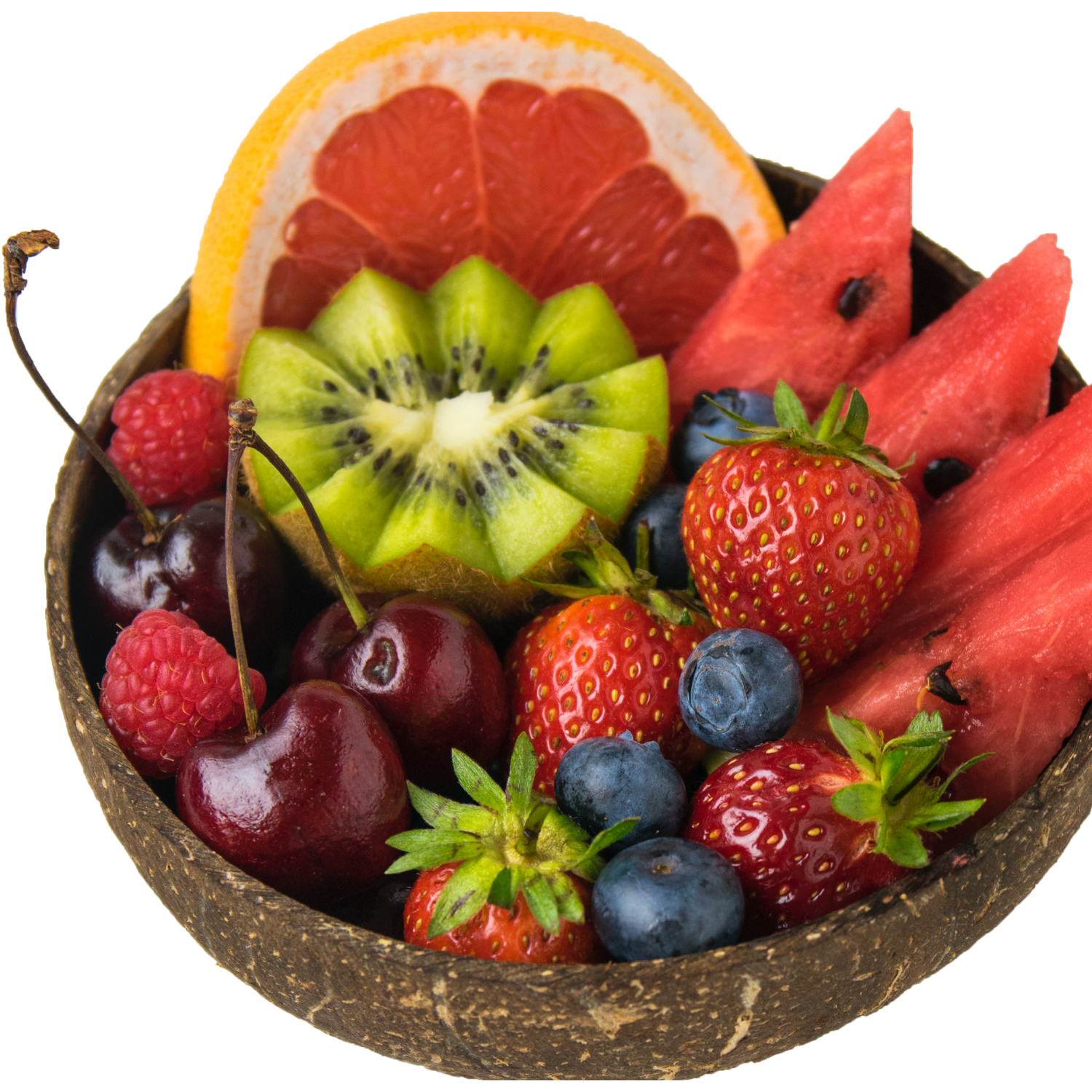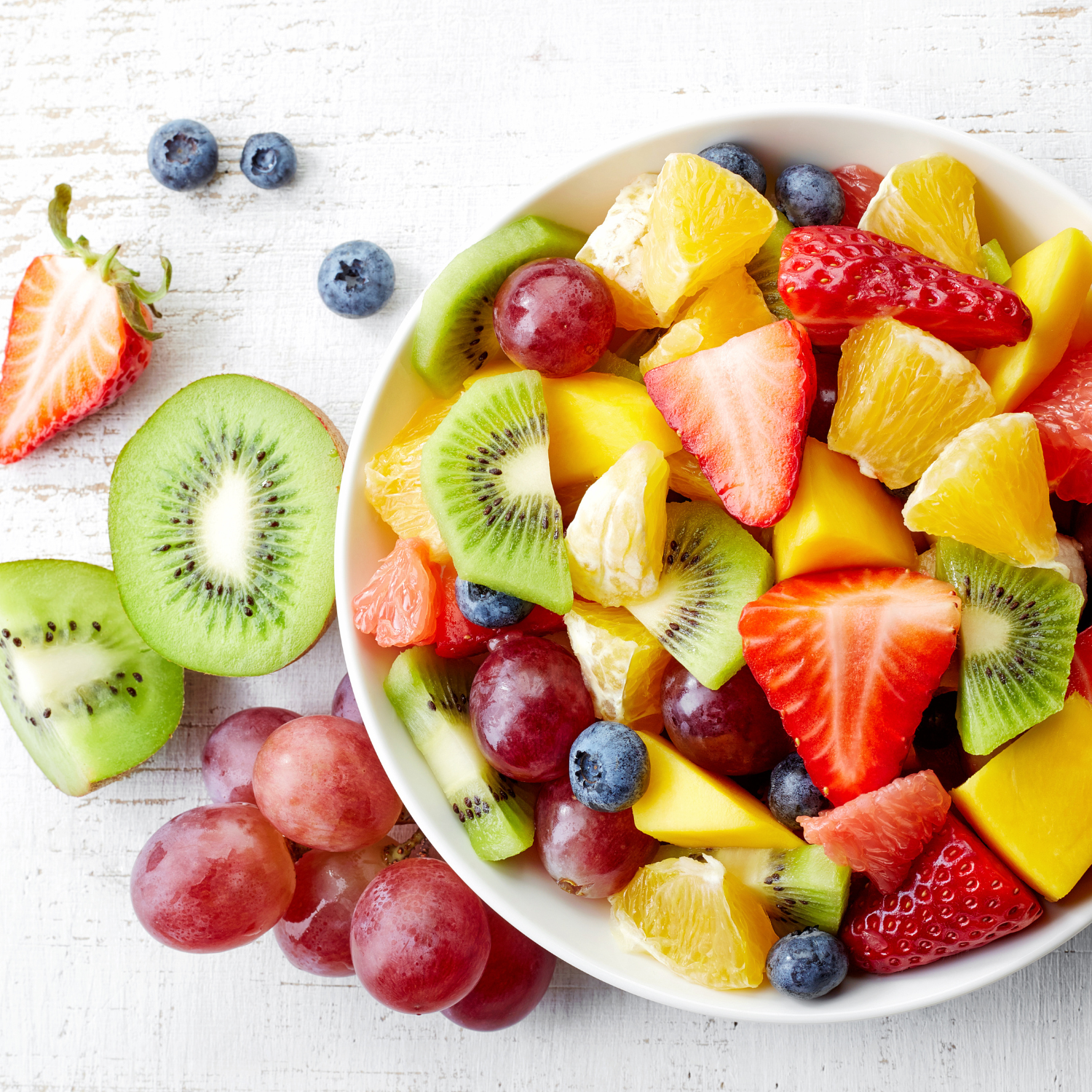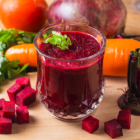Not all fruits are healthy, Before you eat fruits, know which are the most healthy fruits to eat according to the nutritionist!
When it comes to maintaining a healthy diet, adding fruits to your daily meals is essential. Fruits are not only delicious, but they also provide a wide range of nutrients that are beneficial for our overall health. There are a variety of most healthy fruits that are tasty and provide an abundance of benefits that you can easily add to your diet.

In this blog post, we will explore some of the most healthy fruits that you can easily include in your diet. From berries packed with antioxidants to citrus fruits rich in vitamin C, these fruits offer a variety of health benefits that can help you stay on track with your wellness goals.
What are the most healthy fruits?
Let’s dive in and discover the three most healthy fruits you can enjoy today.
Strawberry
Strawberries stand out as one of the most healthiest fruits. Strawberries are endorsed by nutritionists worldwide for their remarkable nutritional profile and numerous health benefits. Packed with essential vitamins, minerals, and antioxidants, strawberries offer a potent combination of nutrients crucial for overall well-being. Their high water content ensures hydration while the abundance of dietary fiber supports digestive health, aiding in weight management and reducing the risk of constipation.
Moreover, strawberries boast an impressive range of vitamins and minerals vital for various bodily functions. They are particularly rich in vitamin C, providing a significant portion of the daily recommended intake in just one cup. This potent antioxidant not only boosts the immune system but also promotes skin health and aids in collagen production.
Additionally, the presence of anthocyanins, flavonoids, and other phytochemicals in strawberries contributes to their anti-inflammatory properties. This fruit is also famous for reducing the risk of chronic diseases such as heart disease and cancer. With a low glycemic index, strawberries offer a guilt-free indulgence, making them a favorite choice for those seeking both flavor and nutrition in their diet.
Watermelon
Watermelon is a healthy hydrating fruit. It emerges as a nutritional powerhouse, known by nutritionists for its exceptional hydrating properties and wealth of health-enhancing nutrients. With a staggering water content of 92%, watermelon stands out as an ideal choice for maintaining hydration levels, especially during warmer seasons.
Its abundance in potassium and magnesium further solidifies its role as a hydration ally, as these minerals act as electrolytes, aiding in fluid balance and counteracting the effects of excessive sodium consumption. Incorporating watermelon into your diet not only helps prevent dehydration-induced headaches but also supports overall hydration, crucial for optimal bodily functions.
Beyond its hydrating prowess, watermelon packs a nutritional punch, boasting a rich array of antioxidants, including vitamins A and C, beta carotene, and notably, lycopene. Lycopene, the compound responsible for watermelon’s vibrant hue. It offers a myriad of health benefits, from reducing oxidative stress and inflammation to potentially lowering the risk of chronic diseases like heart disease, cancer, and type 2 diabetes.
Moreover, the presence of lycopene and beta carotene in watermelon also provides supplementary protection against UV rays, aiding in skin health and potentially minimizing the risk of sunburns. Watermelon’s hydrating properties make it an excellent post-workout replenishment option or a refreshing summer snack.
Melons
Melons, including cantaloupe, honeydew, and watermelon, stand out as refreshing and nutrient-packed additions to a healthy diet. Originating from diverse regions like the Middle East and Africa, these fruits offer a variety of flavors and nutritional benefits.
Cantaloupe, renowned for its sweet taste and vibrant orange flesh, is a powerhouse of potassium, vitamin C, and folate. Its flavonoid content contributes to its anti-inflammatory properties while aiding in stabilizing blood sugar levels and boosting the immune system. With its high water content, this fruit serves as a hydrating snack option, perfect for hot summer days or post-workout replenishment.
Similarly, honeydew melon, with its pale green flesh and subtly sweet flavor, offers a nutritional punch with relatively low calories. Rich in vitamin C and potassium, honeydew provides essential nutrients necessary for overall health.
Additionally, the fiber content of this fruit, along with folate and vitamin B6, further enhances its nutritional profile, making it a wholesome choice for snacks or meal accompaniment.
Furthermore, Melon’s abundance in vitamins A, C, and potassium makes it a valuable addition to any diet, promoting overall health and well-being. With their high water content and potassium levels, melons play a vital role in maintaining healthy blood pressure levels, making them a fantastic choice for individuals prioritizing cardiovascular health.
Whether enjoyed on their own or added to salads and snacks, melons offer a delightful combination of flavor and nutrition, making them an excellent choice for promoting overall wellness.
Final Thoughts
When it comes to achieving good health through nutrition, incorporating a variety of fruits into your diet is key. From the vibrant and flavorful strawberries packed with antioxidants to the hydrating and nutrient-rich watermelon and the refreshing assortment of melons, each fruit offers its own unique set of health benefits. Whether you enjoy them as a snack, add them to salads, or blend them into smoothies, these fruits provide a delicious and convenient way to nourish your body and support your wellness goals. So, why not indulge in nature’s sweet bounty and savor the goodness of these most healthy fruits for a healthier and happier you!
Frequently Asked Questions:
What is the #1 healthiest fruit?
Blueberries are frequently considered one of the healthiest fruits due to their high levels of antioxidants, vitamins, and fiber. They are particularly rich in anthocyanins, which are powerful antioxidants that have been linked to numerous health benefits, including improved heart health, reduced inflammation, and enhanced brain function. Additionally, blueberries are low in calories, making them an excellent choice for a healthy diet.
Which are the 10 most healthiest foods?
- Blueberries
- Almonds
- Avocado
- Sweet Potatoes
- Salmon
- Quinoa
- Broccoli
- Greek Yogurt
- Chia Seeds
Which are the best fruits for weight loss?
The best fruit for weight loss is the grapefruit.
Which is the most healthy fruit?
The title of the “most healthy fruit” is often given to the avocado due to its high nutrient density. Avocados are rich in healthy fats, particularly monounsaturated fats, which are good for heart health. They also contain fiber, vitamins (like K, E, C, and several B vitamins), and potassium, making them incredibly beneficial for overall health.
Which Dry Fruit is Most Healthy?
Almonds are often considered the most healthy dry fruit. They are packed with essential nutrients, including healthy fats, fiber, protein, magnesium, and vitamin E. Almonds are known for supporting heart health, weight management, and even brain function.
Apart from almonds, walnuts are another contender for the most healthy dry fruit. They are rich in omega-3 fatty acids, antioxidants, and anti-inflammatory properties, which contribute to heart health, brain health, and overall well-being.
Which are the most healthy fruits?
Some of the most healthy fruits include:
Blueberries: High in antioxidants, vitamins, and fiber, they support heart health and cognitive function.
Oranges: Rich in vitamin C, fiber, and antioxidants, they boost immune function and heart health.
Apples: Contain fiber, vitamin C, and various antioxidants, promoting heart health and weight management.
Strawberries: High in vitamins, fiber, and antioxidants, they support heart health and blood sugar control.
Which are the Most and Least Healthy Fruits?
Most Healthy Fruits:
Blueberries: Rich in antioxidants and vitamins, support overall health.
Avocados: High in healthy fats, fiber, and various nutrients.
Oranges: Packed with vitamin C, fiber, and antioxidants.
Apples: High in fiber and beneficial plant compounds.
Pomegranates: Loaded with antioxidants, vitamins, and anti-inflammatory properties.
Least Healthy Fruits:
Canned Fruits in Syrup: Often contain added sugars, reducing their nutritional value.
Fruit Juices: Even 100% fruit juice can be high in sugar and lack the fiber found in whole fruits.
Dried Fruits with Added Sugar: While dried fruits can be healthy, those with added sugar can lead to excess calorie intake and spikes in blood sugar.




